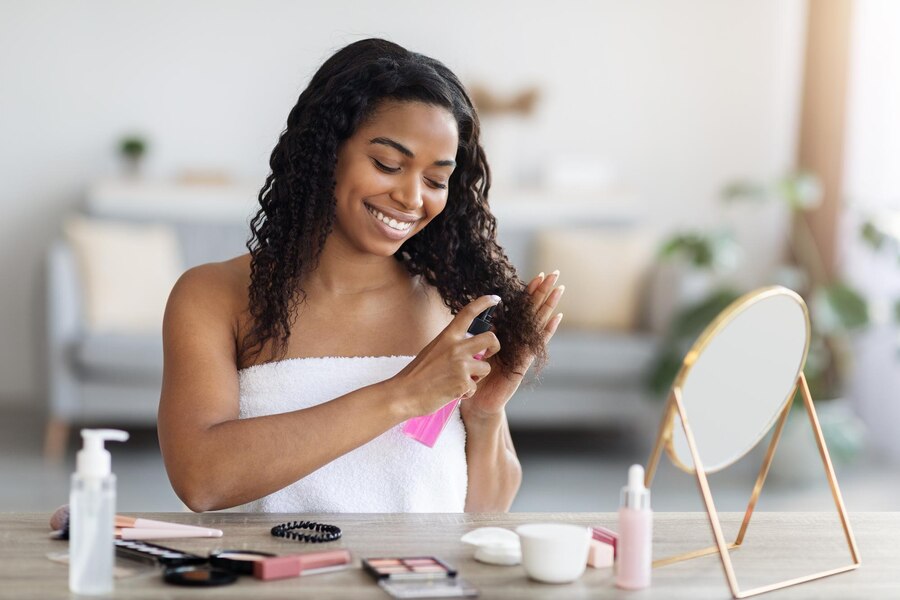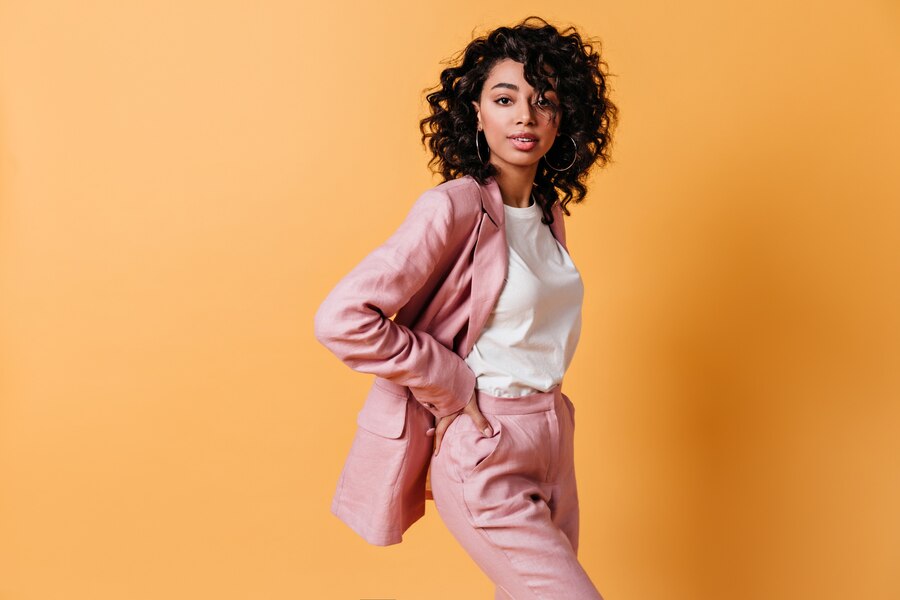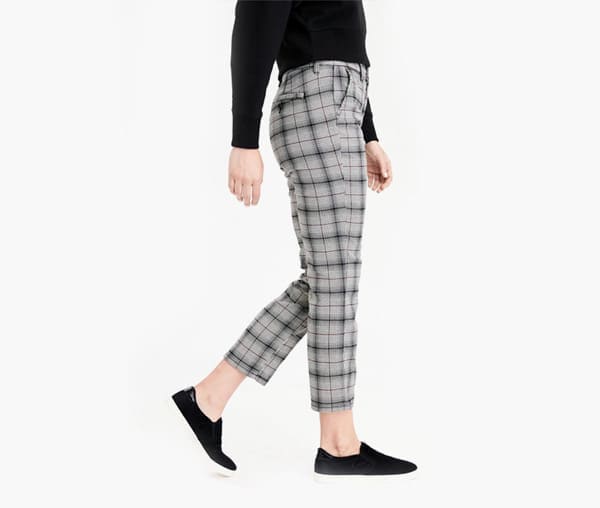A Comprehensive Guide to Hair Care and Styling for African American Women
- Posted by:Ebony Blossom

Embracing the Crown: A Comprehensive Guide to Hair Care
and Styling for African American Women
Introduction:
African American hair, with its unique texture and curl
pattern, is a crowning glory that requires specialized care and styling
products tailored to its distinct characteristics. From the kinks to the coils,
and the waves to the curls, each strand tells a story of heritage and beauty.
This blog celebrates the versatility of African American hair while providing a
guide to the best hair care and styling practices.
Understanding Your Hair:
Before diving into products, it's essential to understand
your hair's porosity, density, and curl pattern. These factors influence how
your hair absorbs moisture and responds to products. With this knowledge, you
can make informed choices that align with your hair's needs, leading to
healthier, more vibrant locks.
Cleansing with Purpose:
Gentle cleansing is the foundation of any hair care routine.
Sulfate-free shampoos are a must, as they clean without stripping natural oils.
Clarifying shampoos used occasionally can remove product buildup and refresh
the scalp. Co-washing, or conditioner washing, can be an alternative for
regular moisture retention.
The Power of Conditioning:
Conditioners are the superheroes of hair care for African
American women. Deep conditioning treatments should be a regular part of your
routine to restore moisture and strengthen hair. Leave-in conditioners are also
crucial for ongoing hydration and protection against the elements.
Moisturize and Seal:
The LOC method (liquid, oil, cream) or LCO method (liquid,
cream, oil) are popular techniques for moisturizing. They involve hydrating the
hair, sealing in moisture with oil, and then applying a cream to close the hair
cuticle, which helps to prevent moisture loss. Finding the right oil is a
personal journey, with choices ranging from coconut to jojoba to argan oil, all
of which offer unique benefits.
Styling with Care:
When it comes to styling products, the less is more approach
often yields the best results. Lightweight mousses, styling gels, and creams
can define curls without weighing them down. Avoiding heavy waxes and
petrolatum-based products can prevent clogging of the scalp pores.
Heat Styling and Protection:
Heat styling can be transformative but also damaging if not
done correctly. Always use a heat protectant before blow-drying, flat ironing,
or curling your hair. Invest in quality tools with adjustable temperature
settings to minimize damage.
The Edge of Edges:
Edge control products are a staple for sleek styles, but
they need to be used wisely. Look for formulations that provide hold without
flaking or causing dryness. Natural alternatives like aloe vera gel can be
gentler on delicate hairlines.
Natural Styling:
Embracing natural styles like twists, braids, and afros not
only protects your hair but also celebrates its beauty. For those who prefer
extended styles, such as weaves and wigs, ensuring your natural hair is clean,
conditioned, and properly braided underneath is key.
The Scalp as a Soil:
Healthy hair starts with a healthy scalp. Products with tea
tree oil or peppermint can stimulate the scalp and promote hair growth. Regular
scalp massages increase blood circulation, encouraging stronger and faster hair
growth.
Cultural Infusion:
Hair care is deeply rooted in African American culture, and
many traditional practices are still relevant today. Incorporating natural
ingredients like shea butter, black castor oil, and apple cider vinegar into
your routine connects you with a rich heritage of hair care.
Conclusion:
Hair care for African American women is an art and a
science, blending the cultural legacy with modern innovation. By understanding
your hair's unique needs and choosing the right products and practices, you can
maintain the health and beauty of your hair. Celebrate every curl, every coil,
and every wave, and let your hair be a statement of your identity and pride.









